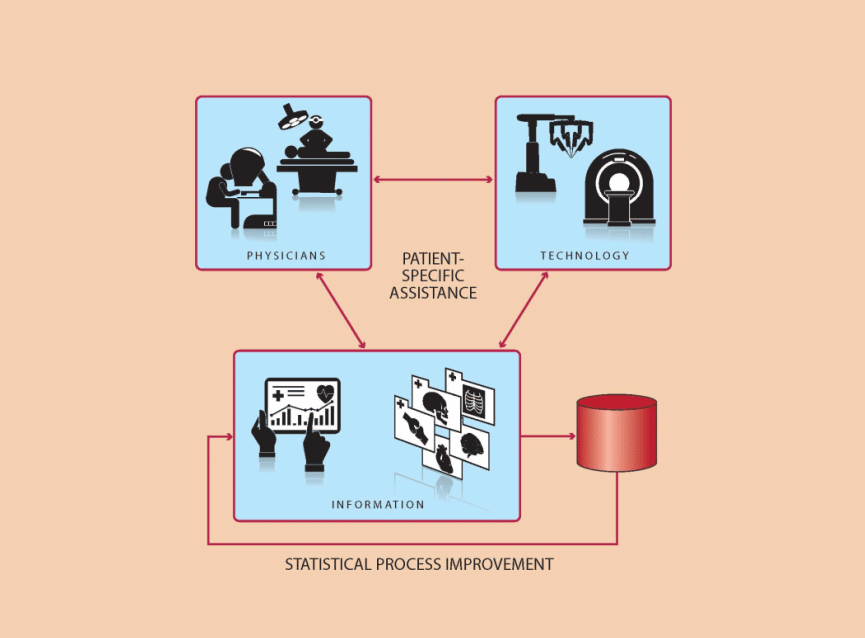Webinar Series September 19, 2022

19 September 2022, 10 – 11 AM ET
View Event Recording | View Special Issue
Description
Since the 1980’s, the field of surgical robotics has grown exponentially to include both many commercially deployed systems and a robust and expanding research community. Advances in artificial intelligence, device and sensor technology, medical image analysis, systems science, and human-machine collaboration capabilities are enabling increasingly effective three-way partnerships between clinicians, technology, and information to improve clinical care. This webinar provides an overview of the major application areas as well as the key enabling technologies in the growing field of surgical robotics.
About the Panelists
Russell H. Taylor (Life Fellow, IEEE) received the Ph.D. degree in computer science from Stanford University, Stanford, CA, USA, in 1976.
From 1976 to 1995, he was a Research Staff Member and a Research Manager with IBM Research, Armonk, NY, USA. He joined Johns Hopkins University, Baltimore, MD, USA, where he is currently the John C. Malone Professor of computer science with joint appointments in mechanical engineering, radiology, otolaryngology, head-and-neck surgery, and surgery and is also the Director of the Laboratory for Computational Sensing and Robotics. He is an author of over 500 peer-reviewed publications and over 90 issued U.S. and international patents. His research interests include robotics, human–machine cooperative systems, medical imaging and modeling, and computer-integrated interventional systems.
Dr. Taylor is a member of the U.S. National Academy of Engineering and is a Fellow of the Medical Image Computing and Computer Assisted Intervention (MICCAI) Society, the American Institute of Biomedical Engineers (AIMBE), and the National Academy of Inventors.
Nabil Simaan (Fellow, IEEE) received the Ph.D. degree in mechanical engineering from the Technion—Israel Institute of Technology, Haifa, Israel, in 2002.
In 2003, he was a Postdoctoral Research Scientist at the NSF Engineering Research Center for Computer-Integrated Surgical Systems and Technology, Johns Hopkins University, Baltimore, MD, USA. In 2005, he joined Columbia University, New York, NY, USA. In the fall of 2010, he joined Vanderbilt University, Nashville, TN, USA. His research interests include medical robotics, kinematics, robot modeling and control, and human–robot interaction.
Dr. Simaan was named as an IEEE Fellow for contributions to dexterous continuum robotics in 2020. In 2021, he was an elected fellow of the American Society of Mechanical Engineers (ASME) for contributions to continuum and soft robotics for surgery. In 2009, he received the NSF Career Award for young investigators to design new algorithms and robots for safe interaction with the anatomy.
Arianna Menciassi (Senior Member, IEEE) received the Ph.D. degree in physics from the University of Pisa, Pisa, Italy, in 1995, and the Ph.D. degree from Scuola Superiore Sant’Anna (SSSA), Pisa, in 1999.
She has been a visiting professor in different universities in France since 2014 (Pierre and Marie Curie University, Paris, France; and Besançon University, Besançon, France). She is a Full Professor of biomedical robotics at SSSA and the Team Leader of the “Surgical Robotics and Allied Technologies” area at The BioRobotics Institute, Pontedera, Italy. She has been the Coordinator of the Ph.D. in biorobotics since 2018, and she was appointed as the Vice-Rector of the SSSA in 2019. She is a Professor of bioengineering and biomedical robotics at SSSA. Her main research interests involve surgical robotics, microrobotics for biomedical applications, biomechatronic artificial organs, smart, and soft solutions for biomedical devices. She pays special attention to the combination between traditional robotics, targeted therapy, and wireless solution for therapy (e.g., ultrasound- and magnetic-based).
Guang-Zhong Yang (Fellow, IEEE) was the Founding Director of the Hamlyn Centre for Robotic Surgery, Imperial College London, London, U.K. He is the Founding Dean of the Medical Robotics Institute, Shanghai Jiao Tong University, Shanghai, China. His main research interests are in medical imaging, sensing, and robotics.
Dr. Yang is a Fellow of the Royal Academy of Engineering, the Institution of Engineering and Technology (IET), the American Institute of Biomedical Engineers (AIMBE), the International Academy of Medical and Biological Engineering (IAMBE), the Medical Image Computing and Computer-Assisted Intervention Society (MICCAI), and the City and Guilds Institute of London. He was a recipient of the Royal Society Research Merit Award and listed in The Times Eureka “Top 100” in British Science. He was awarded a CBE in the Queen’s 2017 New Year Honor for his contribution to biomedical engineering. He is also the Chair of the Advisory Board, the U.K.-RAS Network (http://ukras.org). He was the Founding Editor of Science Robotics. He is the Founding Editor of Science Robotics (http://robotics.sciencemag.org/)—a journal of the Science family dedicated to the latest advances in robotics and how it enables or underpins new scientific discoveries.